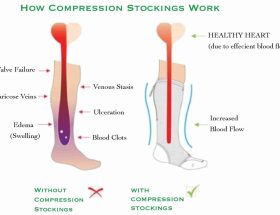Weight management is a constant struggle for many individuals around the world. Despite numerous diet plans and exercise routines, shedding those extra pounds can seem like an insurmountable task. However, what most people fail to realize is that hormonal imbalances can play a significant role in weight gain and loss. By understanding the relationship between hormones and weight, one can effectively manage their weight through proper hormone balance.
The Role of Hormones in Weight Management
Hormones are chemical messengers produced by our endocrine system. They regulate many bodily functions, including appetite, metabolism, and fat storage. When hormones become imbalanced, weight gain can occur. The following are some of the hormones that play a vital role in weight management:
1. Insulin
Insulin is a hormone produced by the pancreas that regulates blood sugar levels. When we consume carbohydrates, insulin signals the body’s cells to absorb glucose for energy. However, if insulin levels are consistently high due to poor diet choices, the body becomes insulin resistant. This resistance causes the body to store excess fat, leading to weight gain.
2. Leptin
Leptin is often referred to as the “satiety hormone” because it signals to the brain when we are full. It is produced by fat cells and plays a crucial role in appetite regulation. However, in obese individuals, leptin resistance can occur, leading to overeating and an inability to feel full.
3. Ghrelin
Ghrelin is known as the “hunger hormone” as it stimulates appetite. When the stomach is empty, ghrelin levels rise, signaling the brain to eat. Once food is consumed, ghrelin levels decrease. However, an imbalance in ghrelin levels can lead to intense cravings and overeating, contributing to weight gain.
Strategies to Balance Hormones for Weight Management
Now that we understand the critical role hormones play in weight management, let’s explore some effective strategies to rebalance hormones for successful weight loss:
1. Eat a Balanced Diet
Avoiding processed foods and consuming a diet rich in whole foods can help regulate hormones. Opt for lean proteins, healthy fats, and complex carbohydrates. Include plenty of fruits and vegetables to provide essential vitamins and minerals necessary for hormone regulation.
2. Control Portion Sizes
Portion control plays a crucial role in weight management. Overeating can disrupt hormonal balance, leading to weight gain. Using smaller plates, measuring serving sizes, and eating slowly can help control portion sizes and prevent excessive calorie intake.
3. Get Sufficient Sleep
Sleep deprivation can disrupt hormones such as leptin and ghrelin, leading to increased appetite and cravings. Aim for 7-9 hours of quality sleep each night to support hormone regulation and weight management.
4. Manage Stress Levels
Chronic stress can have a detrimental effect on hormone balance. High levels of the stress hormone cortisol can lead to increased appetite and fat storage, particularly around the abdominal area. Engage in stress-reducing activities such as yoga, meditation, or hobbies to help manage stress levels and promote hormone balance.
5. Regular Exercise
Engaging in regular physical activity not only helps burn calories but also plays a vital role in hormone regulation. Exercise stimulates the release of endorphins, the “feel-good” hormones, while also improving insulin sensitivity and increasing metabolism. Aim for at least 150 minutes of moderate-intensity exercise per week.
Consulting a healthcare professional
If you’ve tried various strategies to balance your hormones and manage your weight without success, it may be beneficial to consult a healthcare professional. They can perform specialized tests to identify specific hormonal imbalances and develop personalized strategies to address them.
In conclusion, hormones play a significant role in weight management. By understanding the connection between hormones and weight, individuals can take proactive steps to balance their hormones and support successful weight loss. Implementing a holistic approach that includes proper nutrition, portion control, sleep, stress management, and exercise can lead to long-term hormone balance and overall well-being.







